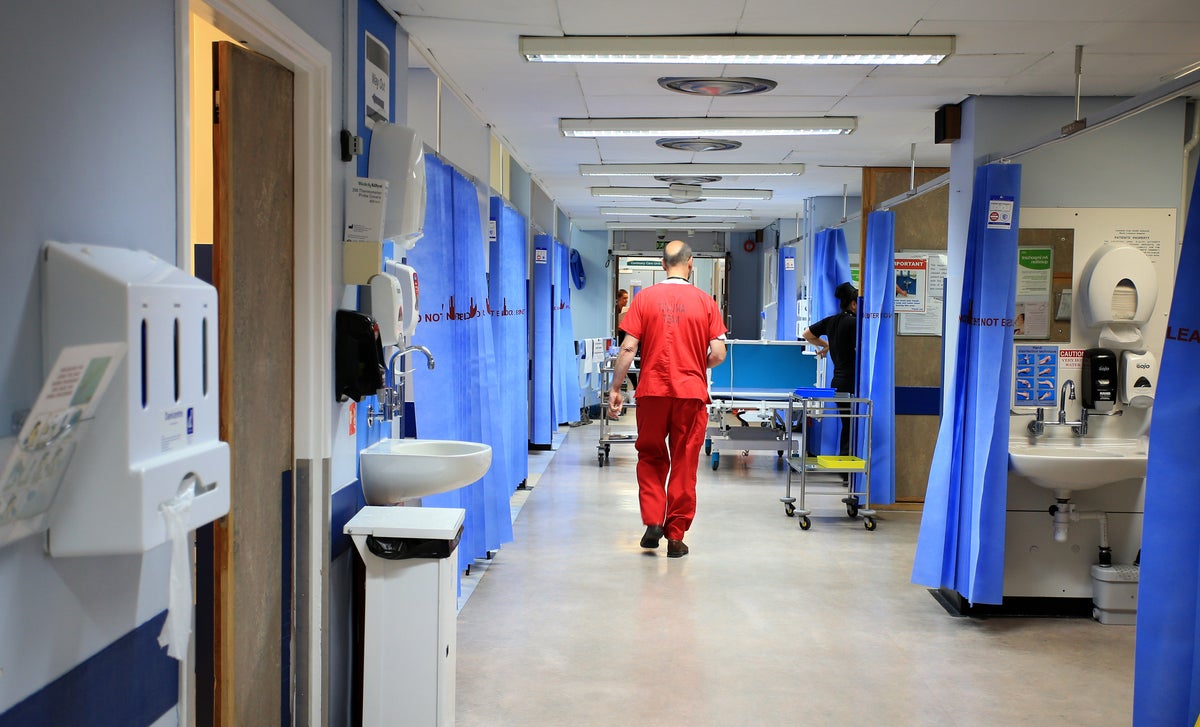
The number of confirmed and highly probable monkeypox cases in the UK has risen to 2,859, as health officials said the outbreak was showing “early signs of plateauing”.
This constitutes a rise of 100 since the UK Health Security Agency’s (UKHSA) previous announcement on Tuesday, which was preceded by a leap of more than 200 in the four days before that.
Of the new cases included in Friday’s announcement, just 91 were those deemed “highly probable” rather than confirmed, while 2,730 of those discovered so far have been in England.
Sixty-seven have been in Scotland, 37 in Wales and 25 in Northern Ireland – with the devolved nations seeing rises of two, five and one respectively since Tuesday’s announcement.
Anyone can contract monkeypox, particularly those who have close contact with an infected, symptomatic individual, the UKHSA said. Currently, most cases are among gay and bisexual men, the agency added, and London has registered more than 70 per cent of cases in England.
Although the most recent figures suggested “the growth of the outbreak has slowed, we cannot be complacent”, warned Dr Meera Chand, the UKHSA’s director of clinical and emerging infections.
“Be vigilant of and check yourself for monkeypox symptoms, including rashes and blisters. If you are concerned that you might have monkeypox symptoms, take a break from events, meeting with friends or having sexual contact. Instead, stay at home and contact 111, or your local sexual health service for advice.”
But the Terrence Higgins Trust, which helped coordinate the national response to the viral infection, said “time is slipping away quite quickly” to limit the outbreak to the capital, with concerning rises reported in Manchester and Brighton.
It’s believed the infection is being transmitted out of London through sexual networks. The trust’s head of policy, Ceri Smith, said there was evidence of men, who account for the vast majority of monkeypox cases, travelling to the capital to attend sex events, such as fetish nights, and contracting the virus before returning home.
“The events are based in London, but the people that are attending and potentially [being] exposed to monkeypox might live elsewhere,” said Ms Smith. “That’s something that we’ve been seeing throughout the outbreak. So there have been little pockets of diagnoses around the country. It’s really hard to prove it, but a lot of it does seem to be linked back to London.”
LGBT+ groups from across the political spectrum have urged the government to increase efforts to combat monkeypox or risk it becoming “endemic” in the UK.
UK health authorities have called for calm, but now those inside Westminster have urged health secretary Steve Barclay to take action because monkeypox had been causing real fear and anxiety within LGBT+ communities.
“We are united as LGBT+ groups from across political parties in asking that the government treat the monkeypox outbreak as a public health emergency,” a letter to Mr Barclay signed by the LGBT+ groups for the Conservatives, Labour, Liberal Democrats, Greens and Scottish National Party said.
“We cannot afford to allow monkeypox to become endemic in the UK. Luckily, we have the tools required to stop this outbreak and prevent further risk to health now. We ask that you do so urgently.”







